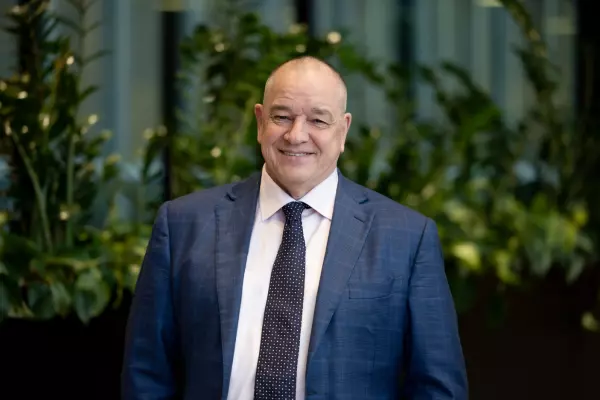BusinessDesk investments editor Frances Cook responds to emails from readers each week to answer questions about money. Below, you will find her expert advice. Send your own questions to [email protected].
Hi Frances,
I'm currently at a point in life where I'm trying to navigate what I'd like to do in the future and working out how much of my decision should come down to financial payoff and stability vs pursuing a career in something I enjoy.
I'm in my early thirties and have worked across several different fields, though mostly in low-paying jobs in the service industry. I have a young child who I am currently caring for full-time. My partner works in a service-type job with below-average pay.
We definitely need more income, as we are struggling to make ends meet.
I could go back to the same kind of work I've been doing, but I'm a bit fed up, to be honest. I don't particularly enjoy it, and it doesn't pay well. The cost of care for our child would negate what I would earn by being back at that same kind of work, so I either need to work opposite shifts to my partner or level up career-wise.
After lots of consideration, I've narrowed my options down to two.
Option A would pay better and be more stable in terms of job security, but it would be a fair amount of change in our lifestyle. It's not a huge passion for me, but I think I would enjoy the work.
Option B requires at least two to three years of study. It would likely be harder to find regular work, but is something I've always wanted to do. Pay would vary greatly depending on what work I could find, as it is a broader field, but in the right situation, I could earn a comfortable enough amount.
Do you have any ideas/insight on how to weigh up a decision like this? And tips for working out whether study is going to be a worthwhile investment in time and money? Note: I can't get the fees-free scheme since this isn't my first time studying/student loan.
Thanks,
J
Hi J,
This is a curly one, but I want to acknowledge one thing first off – I think you’ve identified the right part of the problem. Life is expensive, especially with kids. While cutting back can be well and good, there are only so many cuts you can make. At a certain point, you simply have to look at your options for earning more.
If you’re sick of the work you’ve been doing, and it doesn’t pay well, then those are two big black marks against your current career. It’s not a fulfilling lifestyle or money, so it needs to go.
So, what to make of the two options you’ve narrowed down to?
My thought is … can you do both?
Security vs passion
You say that Option A is decent pay, good security and enjoyable. Excellent. Those are the biggest criteria, and they’re all getting a big tick so far.
You say you’re not passionate about Option A, but here’s where I must confess: I don’t believe in passion jobs.
Every job has a certain amount of difficulty or admin to it, no matter how much you enjoy it. With a job that you expect to find enjoyable, but not to feel passionate about, you at least go in with your eyes open.
You go to work, you do your job, and you find personal fulfilment with family, friends and hobbies, which the job funds. Sounds good to me.
Meanwhile, a passion job can be bitterly disappointing once you get through the door and discover there are still boring bits, annoying managers and the occasional spot of overtime.
Worse, because you signed up feeling excited and enthusiastic, it’s far more common for people to be exploited in passion jobs, whether that’s through low pay or overly long hours. It’s a story I hear all the time.
The consideration here is that you have a kid who’s relying on you, and you’ve already identified the need to get more income for the household. That means Option A looks good because it’s more immediate and fulfils those needs you’ve identified.
That doesn’t mean you can’t do Option B, though.
When I first thought of going into journalism, I was still in high school, and lots of people warned me against it. They told me it was a difficult career to succeed in. That there was lots of competition.
I looked around for “smarter” choices for a career, dithering all the way through university. In the end, I stayed at uni too long and ended up going into journalism anyway.
Life is too short to have unfulfilled dreams. However, the reality of life is that it takes money to fund it. Money stress is also the number one cause of relationship breakups. So, we want to be smart about dreams, and strategic as we lock them in.
Option B
Could you study part-time, even if it’s just one paper at a time? Could you start looking for work in the Option B field on a casual or intern basis, to build up experience that makes you more employable for the roles you actually want?
When people talk about wanting to start a business, my advice is often to start on the side first, while keeping their day job, for stability.
You build up the business on the side, while testing if it will work and growing it until it’s the right time to take it full-time. Then it’s no longer a leap into the unknown, with just an idea and a prayer.
It will be hard while doing this, don’t get me wrong. I understand it will take up a lot of time and energy while juggling multiple things.
But if it was easy, everyone would do it.
It’s similar with a career change. If you need to commit to studying and possibly unstable opportunities once graduated, but you’re making these changes to support your family, you need to make sure you have the actual family support in place.
If there’s a way that you can lock in Option A, while making long-term plans towards Option B, I think that’s the best bet.
It might take longer to achieve, which I know is annoying. But you’re in your early thirties, so you do have time. And it’s taking less risk with the finances. Leaping straight to Option B sounds like it could be a risky one.
I suspect that’s not the answer you were hoping for, but I do think it’s the one that will work best.
Send questions to [email protected] if you want to be featured in the column. Emails should be about 200 words, and we won't publish your name. Unfortunately, Frances is not able to respond to every email received, or offer individual financial advice.
Information in this column is general in nature and should not be taken as individual financial advice. Frances Cook and BusinessDesk are not responsible for any loss a reader may suffer.














